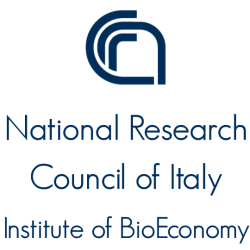Introduction
DAYLIGHTING RIVERS is an environmental and scientific education project co-financed by the European Erasmus + program (2017-2020), which involves secondary school students in practical and interdisciplinary research activities on the rivers and canals that flow in the city with particular attention to ecosystems, management, threats and human impacts. In fact, it starts from the social context that sees students not very interested in science and career towards scientific faculties, also because they are considered more difficult. Instead, involving them in projects that aim to get to know their own territory, and with practical activities, not only stimulates interest but is also a way to approach the topics from many points of view, overcoming the vision of a “watertight” teaching.
Students undertake activities not only in science, on the environmental effects and characteristics of rivers, but also in other subjects looking at historical, social and economic aspects. In our project, the acronym “Daylighting Rivers” means not only bringing to light covered rivers, but also increasing environmental awareness and stimulating active citizenship.
Students undertake activities not only in science, on the environmental effects and characteristics of rivers, but also in other subjects looking at historical, social and economic aspects. In our project, the acronym “Daylighting Rivers” means not only bringing to light covered rivers, but also increasing environmental awareness and stimulating active citizenship.
Project results and available resources
The project developed following well-structured phases:
- First of all, a learning methodology was developed that would cover the interests of the students in relation to the project theme and the teaching methodologies, identified through a questionnaire, and which would promote the most effective teaching models based on the bibliography (e.g. method survey, brainstorming). Knowledge of the area and outdoor activities are key elements in promoting interest in science and other subjects, so the “river” in your area lends itself well to multidisciplinary investigations: history, science, technology, economy etc. The methodology is based on Inquiry Based Learning which aims at building a scientific investigation, developing transversal skills such as teamwork and communication and the use of different technologies and languages (scientific and storytelling). The methodology includes a phase of assessing the skills and attitudes to learning STEM (Science – Technology – Engineering – Math). In addition, it also promotes the use of information technologies that are used both for the collection of georeferenced data and for the communication of results. More information is accessible from the dedicated page of the project website.
- Teacher training : teachers of the pilot schools involved in the project were given a 5-day training course focused on the use of information and communication technologies, mainly on QGIS (an opensource Geographic Information System) for ‘territorial analysis and mapping, and Location Based Games to get to know the territory through the location based game with mobile devices. The course materials are also available from the project website.
- Development of Learning Units and piloting . 22 Units are available for use on specific topics related to rivers (e.g. eutrophication, biodiversity of the river ecosystem, effects of the river on the microclimate, the river in art, economic impacts etc.) which combined can cover macro-themes such as the cycle of ‘water, impacts of human intervention on the river ecosystem, river management, hydrogeological risk. Units are available in English from web page dedicated to macro-themes and units and in Italian from the national pages.
To learn more about how the project works in the classroom, click here and download the materials.
- The effectiveness of the activities was evaluated in terms of the skills and interest acquired by the students. In all schools, albeit with differences determined by the local context, the carrying out of the project highlighted the effectiveness of the methodology that aims at the centrality of the student and the development of knowledge relating to the territory. The pilot experience reports are accessible from the web page of methodology and of the implementation .
- As part of the project, national events were also organized to disseminate the project but also a final conference that collected a variety of topics related to rivers
Downloadable materials
The materials produced by the project are mainly in English (eg the training materials for teachers, the methodology guide, the Learning Units and the evaluation reports) and can be downloaded for free directly from the page of the project website. However, the Methodology Guide and the Learning Units are also available in Italian and can be downloaded via the buttons below.
Visit the website of the project: www.daylightingrivers.com
Contacts for IBE-CNR
Dott.ssa Francesca Ugolini francesca.ugolini [ at ] ibe.cnr.it
P A R T N E R S
Water Right Foundation (Coordinatore)
Istituto per la Bioeconomia – CNR (IT)
Liceo Scientifico Sensale (IT)
PRISMA – Centre for Development Studies (GR)






